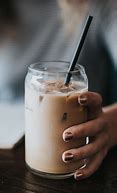Coffee is one of such beverages which is loved across boundaries. However, if you have tasted coffee in more than one place, and chances are you have, the taste is not the same. We are not talking about the cappuccino vs espresso but the taste in general of the coffee. When you have a coffee subscription in Adelaide, you will know how the taste vary across cafes and home brew. Did you ever wonder why is that so?
Ask the experts of coffee roasters in south australia, they will tell you that coffee is about 99% water. When you have good water, there is good coffee. The truth is hard or bad water can lead to disappointing taste in coffee. Water is not the same everywhere. It can be distilled, filtered, spring, soft water or hard water.
Difference between hard and soft water
Hard water is filled with minerals like magnesium and calcium but soft water is considered to be pure and free from these minerals. There are bicarbonate ions which lead to the hardness in the water and these compounds carry some flavoured compounds that help in the brewing process of coffee. Because of the sticky nature the water influences the flavour of the beverage and not always in the bad way. For instance, when there is magnesium in water, it can make the coffee stronger because of its sticky nature which helps to adhere to the caffeine and thus increase the caffeine level and the flavor.
What is the best water for coffee brewing?
Since soft water seems to be the pure form, often it is thought to be the best option to brew coffee. However water sources are different in different parts of the world. The truth is, when you are brewing coffee it does not need to be 100% pure and having some minerals in them can help to extract the flavour and aroma from the ground coffee. The best water should be mildly acidic, clear and free from chlorine and should also have minimal concentration of the other minerals. Whatever it is, the water has to be fresh even if you have filtered it before. If the water has sat for more than 12 hours, the carbon dioxide concentration will mess up with the flavor, reducing the ph level and giving your coffee a disappointing flavor.
How can you fix the water?
There are many ways how you can help your coffee from getting ruined. The first option is to filter the tap water when you have too much mineral which is the most common problem all across. You will need a water softening filter or a filtering pitcher can also help. You need to change these filters regularly because they will get hard with the deposit of calcium over time. The second option is to have a soft water source. You can also store these soft water in some reusable jugs. The water might not be 100% pure but it is definitely better than hard water which has too many minerals. If you want a third option, you can choose spring water to make your coffee.
As a simple experiment, you can filter the home water, pour it in a jug and also collect some hard water without filtering. You can buy bottled water as well as the third option. Try brewing coffee with these three types of water making a French press or an espresso. As you taste each cup of them, you will find the difference. The aromas will also be varied. Which one you find the best, you can stick to the one.
Water quality is extremely important in coffee making. Irrespective of you being a casual coffee drinker or a caffeine addict, using hard water to brew your coffee will destroy the actual flavour of the beverage; so, taking care of your water means you can enjoy the real quality that you will get from the freshly roasted high quality coffee beans.

